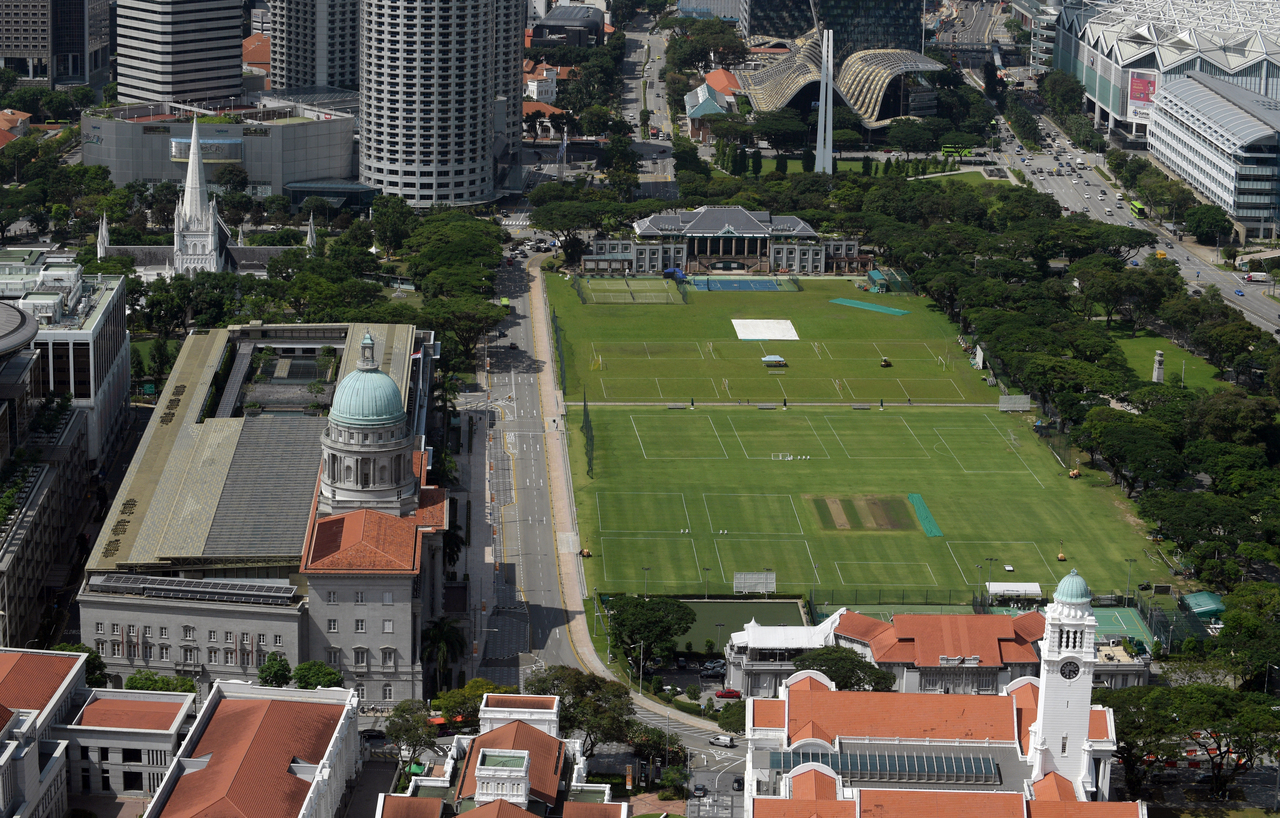Definition of national monuments to be expanded, allowing sites like the Padang to be gazetted
Sign up now: Get ST's newsletters delivered to your inbox

Other changes to the Preservation of Monuments Act will vest the National Heritage Board with expanded enforcement powers.
PHOTO: ST FILE
Follow topic:
SINGAPORE - The definition of national monuments here will be broadened under changes to the law passed in Parliament on Tuesday (Nov 2), paving the way for sites like the Padang to be gazetted.
Other changes to the Preservation of Monuments Act will vest the National Heritage Board (NHB) with expanded enforcement powers, a move Minister for Culture, Community and Youth Edwin Tong said will help deter potentially errant parties who may damage national monuments.
The expanded enforcement powers will also apply to proposed monuments, he said, a standard that is applied in other jurisdictions such as Hong Kong and the United Kingdom.
MPs raised concerns about the new provisions that will allow NHB's director of national monuments and monument inspectors to forcibly enter monuments without a warrant.
Workers' Party MP Leon Perera (Aljunied GRC) said that while he agreed with the thrust of the Bill to increase protection for the monuments, these powers should not permit damage to them.
"I believe the law needs to be more balanced and should not encroach on the rights of monument owners and occupiers, especially at the risk of damaging the actual monuments, unless absolutely necessary," he said.
Noting that the provisions allow for any outer or inner door or window of the monument to be broken into, Mr Perera said: "I urge careful reconsideration - how is such violent action consistent with protecting our monuments?"
Mr Louis Ng (Nee Soon GRC) said inspectors should apply for a warrant before entering the premises if there is no urgent need for enforcement and monuments are not in immediate danger.
This will ensure that proper process is followed and reduce the likelihood of allegations of improper conduct made against the enforcers, he said.
In response, Mr Tong said NHB would exercise the powers judiciously. The fundamental consideration is to ensure that the value and distinctive nature of the monuments are well preserved and protected, he added.
Forcibly entering without warrant is only allowed under specific circumstances, he said, when there are reasonable grounds to suspect an offence has been committed on the site.
The four provisions are: failing to comply with a preservation notice; works being done on the monument without permission; non-compliance of an enforcement notice; and the defacement, damage or interference with a monument or a proposed one.
These provisions are "matters which go to the heart of preserving and protecting the site", said Mr Tong.
"So we don't start with a blank canvas. You start with an officer having reasonable grounds to believe that one or more of these four scenarios is taking place or is likely to take place."
The new laws also stipulate that an officer must make every effort to speak with the owner or occupier of the site before forced entry takes place, Mr Tong noted. "Any damage to the heritage site will be an absolute last resort, only if necessary to have a protection of the greater site itself."
Mr Perera also urged the Government to engage the public and heritage groups more deeply in the process of gazetting a national monument.
"There is no legal provision or mechanism enshrined in law for members of the public or heritage groups to provide feedback or objections in this process," he said.
Responding, Mr Tong said NHB conducts public engagements regularly. "We've chosen not to have a formal process hard coded into legislation. But that does not mean that NHB does not engage," he added.
He noted that said the Board conducts regular engagements with heritage societies, docent leaders, monument owners and occupiers, and NHB grant recipients.
Under the new laws, proposed monuments will be announced on NHB's website after a notice of intention to gazette it has been served to the owner or occupier. The public can then give feedback on the proposal.
On Mr Perera's call to make clear the timeline for gazetting monuments, Mr Tong said the Government has opted to retain flexibility for now as the time needed to gazette different monuments varies.
Mr Perera had also called for the National Monuments Fund to be expanded to cover more restoration and maintenance works.
Mr Tong replied: "We'll take steps to see how we can explore that better and, in the appropriate cases, support monument owners or occupiers to better maintain the historic features."

